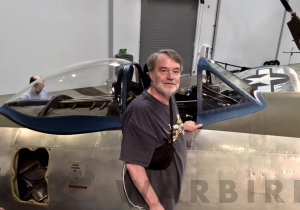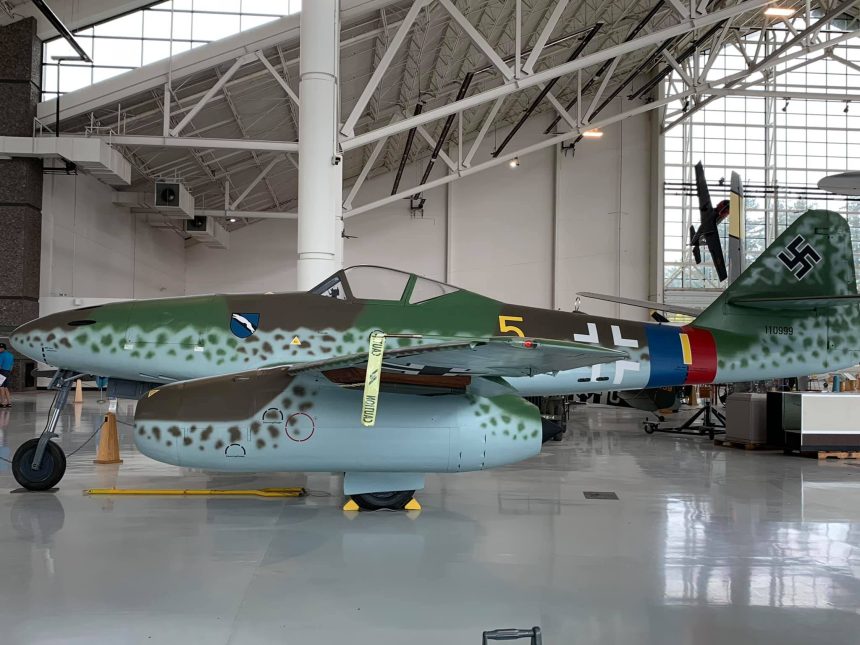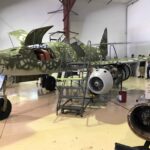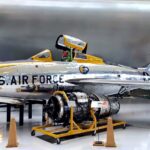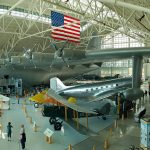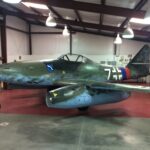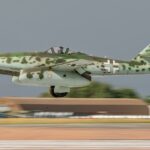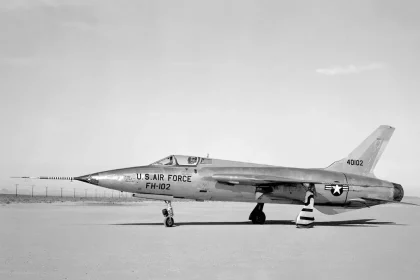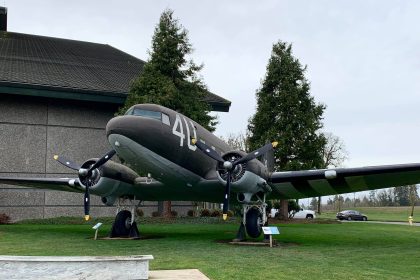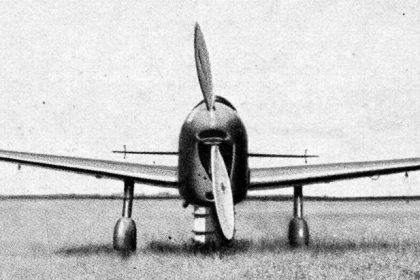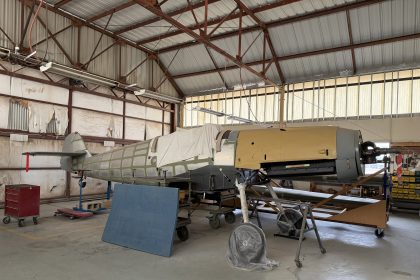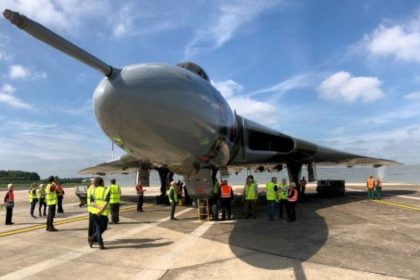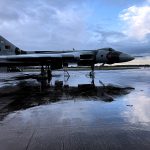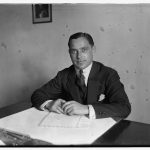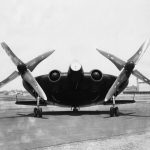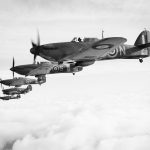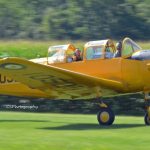By Randy Malmstrom
Since his childhood, Randy Malmstrom has had a passion for aviation history and historic military aircraft in particular. He has a particular penchant for documenting specific airframes with a highly detailed series of walk-around images and an in-depth exploration of their history, which have proved to be popular with many of those who have seen them, and we thought our readers would be equally fascinated too. This installment of Randy’s Warbird Profiles takes a look at the Evergreen Aviation & Space Museum’s reproduction Messerschmitt Me 262.
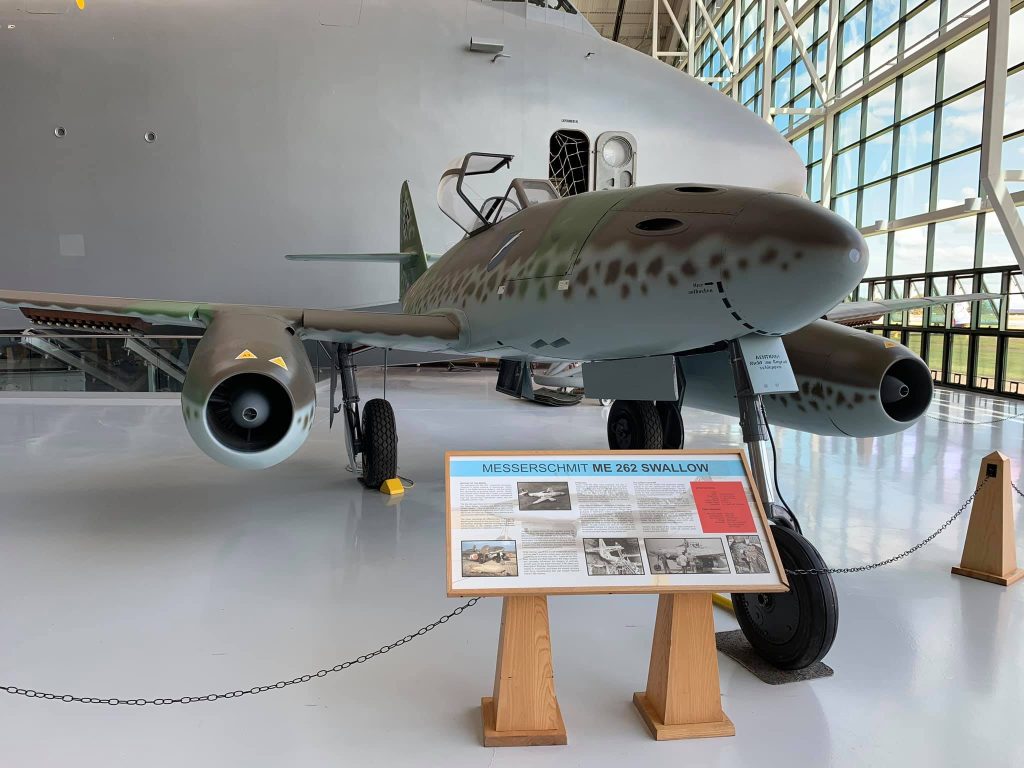
This is an engine-less reproduction which was built by Legend Flyers (ME-262 Project) on Paine Field in Everett/Mukilteo, WA (I understand engines were a real possibility, such as with some of the Legend Flyers Me-262 builds). It was acquired by the Michael King Smith Foundation in May of 2010 (USAF pilot Michael King Smith was the son of Del Smith, founder of the Evergreen empire).
The Messerschmitt Trust supplied aircraft work numbers or Werk Nummern (based on the old RLM system) as the last five machines off the production line and this was assigned W.Nr. 501245. The reproduction is on display at Evergreen Aviation & Space Museum in McMinnville, OR.
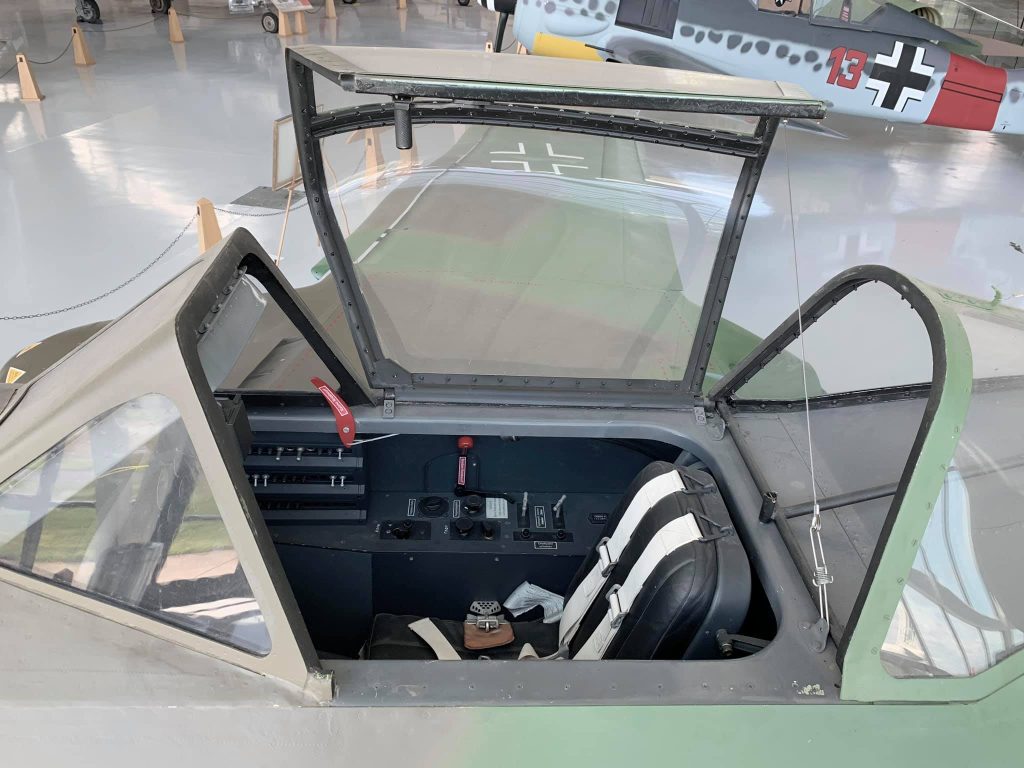
The original idea of the Luftwaffe behind the Me-262A-1a was to build twenty trainers, but only 15 were build by war’s end. The five W.Nrs. assigned to the Me 262 project were to “complete” the five that were not produced, from 501241 on. In correspondence from Ulrich Hagmann of Support for Lightweight and Historic Aircraft of Airbus Defense and Space GmbH in Manching, Germany (that organization enables Airbus and the Messerschmitt Trust to preserve the company’s history and maintain its tradition, the former entity Messerschmitt-Bölkow-Blohm which was formed due to mergers in the 1960s having become part of Airbus) he provided me with information regarding the W.Nr. that was assigned to this aircraft and the other four.
This reproduction is painted in the “mottled” markings of Gelbe 5 (Yellow 5), W.Nr. 110999, of Leutnant Alfred Ambs, Jagdgeschwader 7 (III./JG 7) “Nowotny” (named after Luftwaffe ace Walter “Nowi” Nowotny, Kdo führer of Kommando Nowotny) which was based in Brandenburg Briest. Ambs was shot down over Berlin in his Me-262 on March 24, 1945 by 1st Lt. Earl R. Lane using the K-14 computing gunsight in his P-51D. Lt. Lane was a pilot with the 332nd Fighter Group based in Italy, part of the great Tuskegee Airmen. Ambs bailed out at 17,000 feet and survived the war and died in 2010.
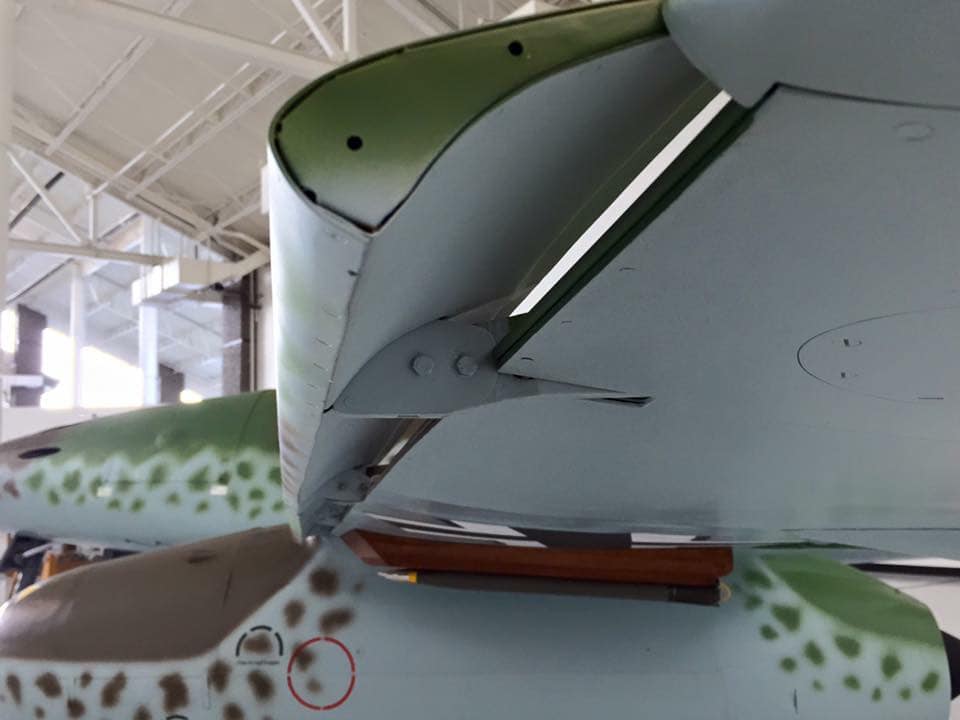
I believe Sammelmitteilung Nr. 2 of August 15, 1944 delineates RLM camouflage schemes including what we refer to as “mottling” but I have found no official reference to the term “mottling” or “mottled” other than a combination of RLM colors.
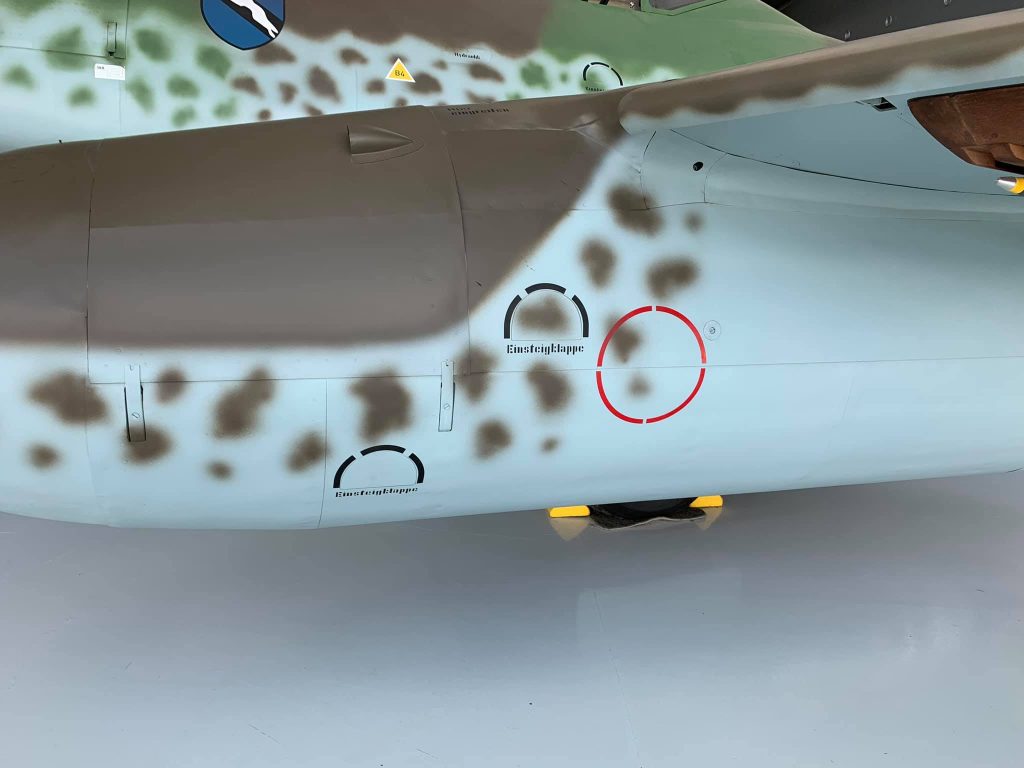
The Legend Flyers airworthy aircraft are fitted with General Electric C610 jet engines and built utilizing the same materials and construction techniques as the originals. The Revi 16B gunsight is from a flat pattern using CATIA software, and the lenses are made from Lexan.
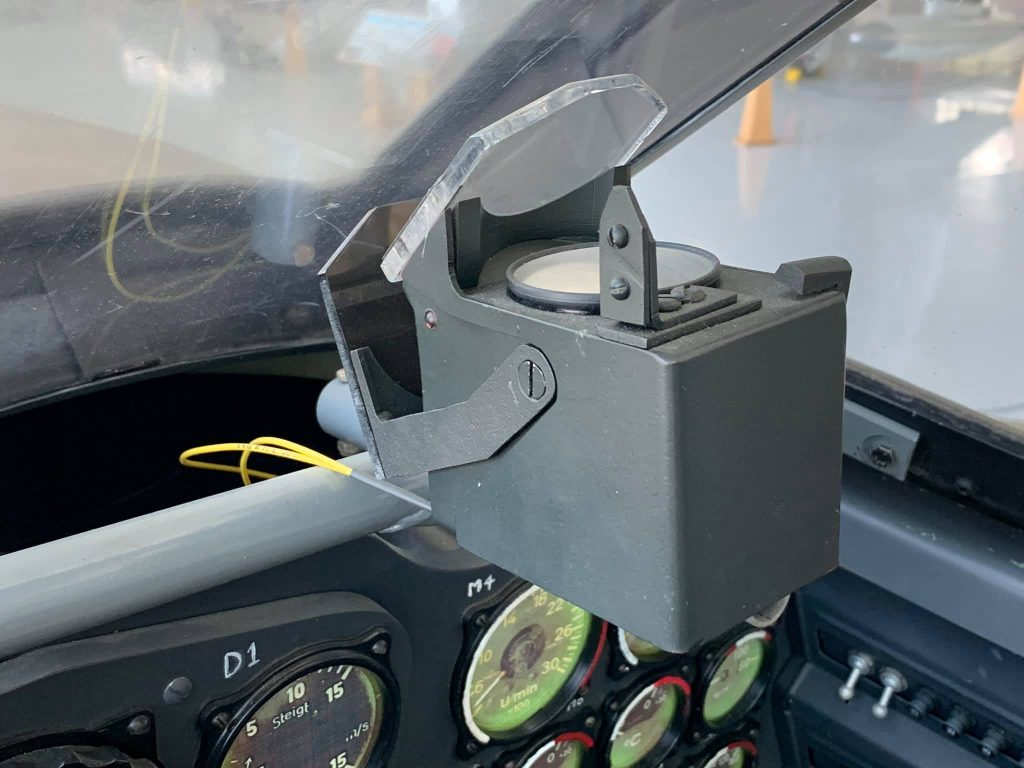
For this reproduction, used were leftover non-flight worthy instruments, photos of original gauges, and clear plastic form CD cases; etc. Fortunately, Ambs had a chance to see this Yellow 5 reproduction before his death and was a key part in making sure its markings were correct.
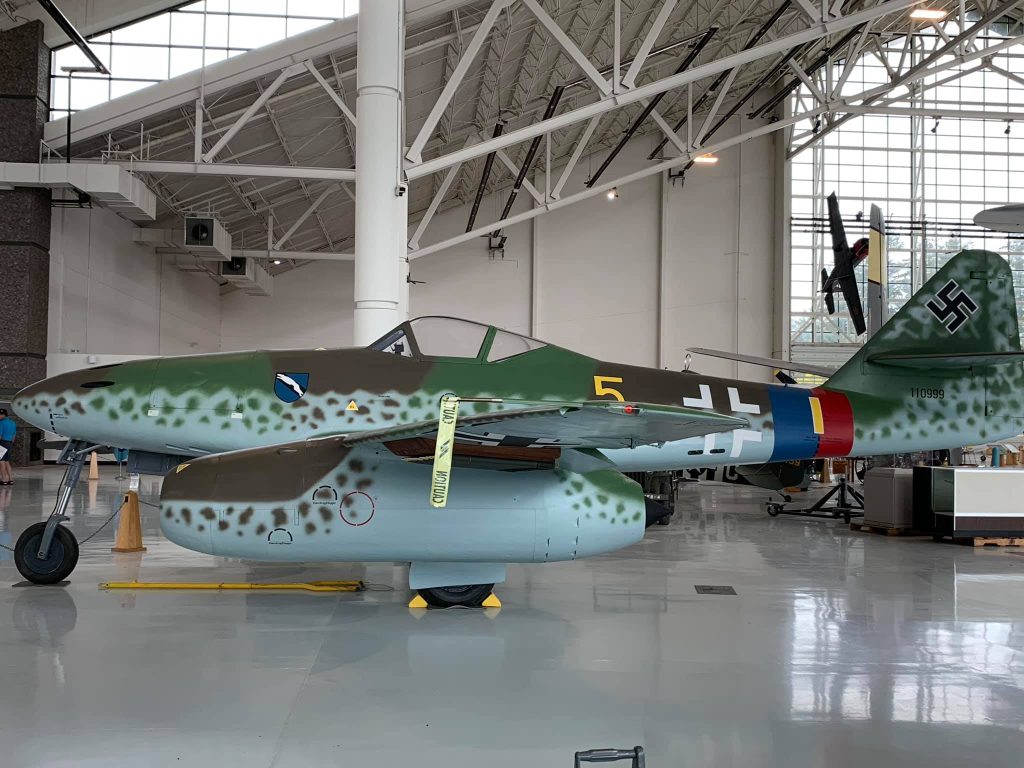
About the author
